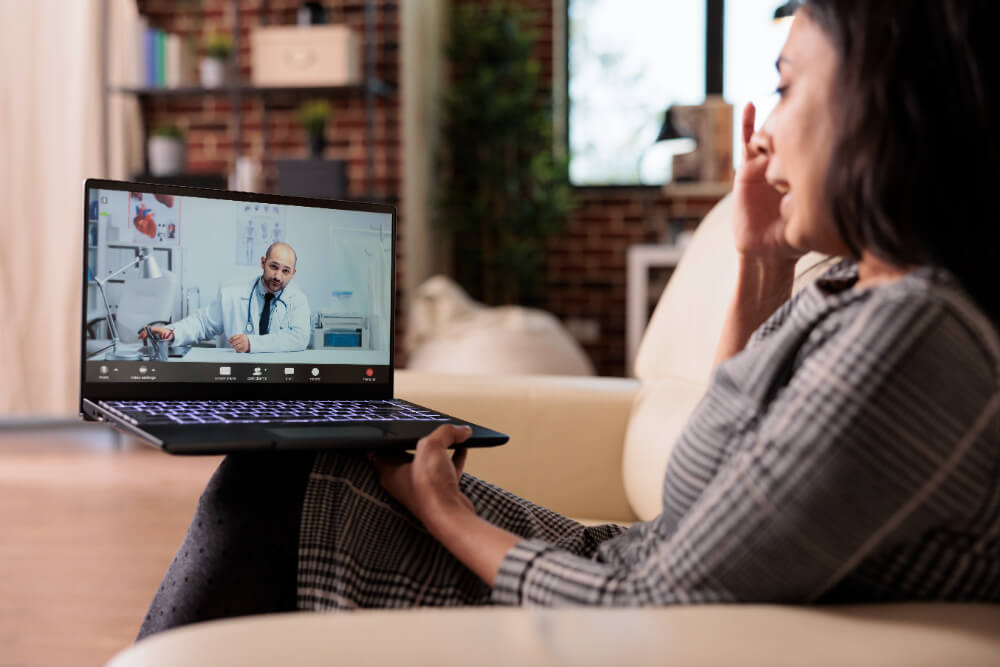Telehealth for Minor Strains: Accessible and Convenient Care
Telehealth has revolutionized the way healthcare is delivered, especially for minor injuries like strains. Minor strains—caused by overstretching or tearing muscles or tendons—are common injuries that can result from everyday activities, exercise, or work. While these injuries are not life-threatening, timely care is essential for proper recovery and to prevent complications. Telehealth offers a convenient and effective way to consult healthcare professionals without needing to visit a clinic in person. This article will delve into the benefits of telehealth for minor strains, how it works, and what patients can expect during a telehealth appointment.
What is Telehealth and How Does it Work?
Telehealth uses digital communication tools, such as video calls, phone calls, and online portals, to provide remote healthcare services. Patients can consult licensed medical professionals for various conditions, including minor strains, without leaving their homes.
A telehealth session for a minor strain typically involves a live video consultation where the healthcare provider asks about the patient’s symptoms, medical history, and the incident leading to the strain. In some cases, photos or videos of the affected area may be requested to help with diagnosis.
Understanding Minor Strains
A minor strain happens when muscles or tendons are stretched beyond their limits. Common symptoms include:
- Pain and tenderness in the affected area
- Swelling or bruising
- Difficulty moving the affected muscle or joint
- Mild stiffness
Causes of Minor Strains
- Overexertion during exercise
- Poor posture or sudden movements
- Carrying heavy objects incorrectly
- Accidents during everyday activities
Most minor strains can be managed at home with proper guidance, making telehealth an ideal solution for care.
Benefits of Using Telehealth for Minor Strains
Telehealth is becoming the go-to solution for minor injuries due to its many advantages:
Convenience and Accessibility
Patients can consult a healthcare provider from the comfort of their homes, saving time and avoiding travel.
Cost-Effective Care
Telehealth reduces costs associated with clinic visits, such as transportation and time off work.
Quick Access to Professional Advice
Telehealth platforms often offer same-day appointments, allowing patients to receive timely care and reduce recovery delays.
Personalized Treatment Plans
Providers can offer tailored advice based on the patient’s symptoms, ensuring effective management and recovery.
Common Recommendations and Treatments for Minor Strains
For minor strains, healthcare providers often recommend the following:
RICE Therapy
- Rest: Avoid activities that stress the affected area.
- Ice: Apply ice packs to reduce swelling and pain.
- Compression: Use elastic bandages to minimize swelling.
- Elevation: Keep the strained area elevated to reduce swelling.
Over-the-Counter Medications
Nonsteroidal anti-inflammatory drugs (NSAIDs) like ibuprofen can help alleviate pain and inflammation.
Gentle Stretches and Exercises
Once the pain subsides, patients may be guided to perform light stretches or strengthening exercises to promote recovery.
Choosing the Right Telehealth Provider
When selecting a telehealth provider for minor strains, consider:
- Experience: Look for providers experienced in treating musculoskeletal injuries.
- Availability: Ensure the platform offers convenient scheduling and follow-up options.
- Technology: Choose platforms with user-friendly interfaces and secure communication tools.
Preventing Minor Strains: Tips from Experts
Prevention is always better than cure. To reduce the risk of minor strains:
- Warm-Up Before Exercise: Stretch and warm up before physical activity.
- Maintain Good Posture: Sit and stand correctly to avoid unnecessary strain.
- Use Ergonomic Tools: Invest in ergonomic equipment, especially for repetitive tasks.
- Strengthen Muscles: Engage in regular strength-training exercises to improve muscle resilience.
Conclusion: Telehealth as an Accessible Option for Minor Strains
Telehealth is an invaluable tool for managing minor strains. It provides quick, affordable, and accessible care for patients, ensuring they receive expert guidance without the need for in-person visits. By leveraging telehealth services, patients can recover effectively while saving time and resources. For minor injuries, telehealth stands out as a practical and efficient option that promotes health and convenience.
Contact our clinic’s Telehealth services for minor strains (469) 225-0666 Or visit us https://specialtycareclinics.com/locations/ennis/


